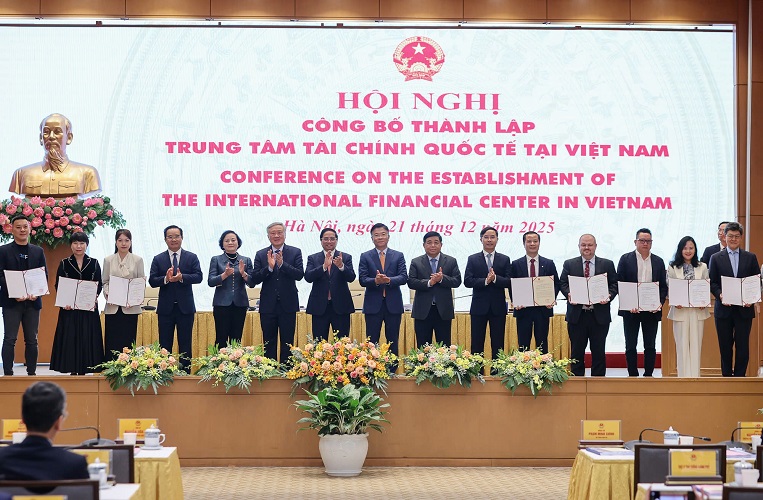FOREIGN EXCHANGE AND FOREX MARKET: NOTES WHEN TRADING
Foreign exchange is a common phrase used when investing in international transactions. In this article, Siglaw invites you to learn in detail the related knowledge when trading or investing in the foreign exchange market in accordance with current legal regulations:
WHAT IS FOREIGN EXCHANGE?
Simply, foreign exchange is assets and property rights that can be valued and converted into foreign currency, accepted worldwide as payment currency for use in international transactions.
Specifically, foreign exchange includes the following types:
- Foreign currency: is foreign currency, or common international currency
- Foreign currency payment instruments: such as bills of exchange, checks, promissory notes, bank cards, bank transfer papers
- Documents with value equivalent to foreign currency such as bonds and stocks
- Gold: including gold in national reserves, gold bullions, gold bars, gold ingots, gold in foreign accounts.
- National currency (National currency): is the currency of the country when used in international payments or transferred out of the country and is considered foreign exchange
- Cryptocurrency: such as Bitcoin, Ethereum….
COUNTRIES WITH THE LARGEST FOREIGN EXCHANGE RESERVES IN THE WORLD
According to the World Bank (WB) and the International Monetary Fund (IMF), the three countries with the largest cash and gold reserves are China, Switzerland and Japan.
In terms of foreign exchange reserves, the latest update in 2015 shows that the three countries with the largest foreign exchange reserves, from highest to lowest, are China, Japan and Saudi Arabia.
WHAT IS FOREIGN EXCHANGE TRADING?
Forex trading can be defined as the exchange, purchase and sale of foreign currencies, foreign exchange goods and valuable papers in foreign currencies on the global market to earn profits for the trader himself. Foreign currencies are traded through an intermediary (broker) or directly in a pair. For example, EUR/USD or GBP/JPY
TOP CURRENCIES IN FOREX TRADING
- The list of major currencies in global forex trading includes: USD (US dollar), EUR (Euro), Japanese Yen, British Pound, AUD (Australian dollar), Franc (Swiss Franc), CAD (Canadian dollar), HKD (Hong Kong dollar), Swedish Krona, NZD (New Zealand dollar).
- The list of emerging currencies when registering for global forex trading is: HKD (Hong Kong dollar), SGD (Singapore dollar), MXN (Mexican peso),…
WHAT IS THE FOREIGN EXCHANGE MARKET?
This is a decentralized place where buying, selling, exchanging foreign currencies and international means of payment with foreign currency value take place. In a narrower sense, the foreign exchange market is a foreign exchange market with 85% of the participants being banks conducting foreign exchange transactions.
Notes on the foreign exchange market
Subjects of the foreign exchange market
There are three main groups of subjects:
- Large banks: some large banks such as Citibank (USA), Deutsche Bank (Germany), Goldman Sachs (USA), … This foreign exchange transaction will be carried out for the banks themselves, companies, large government agencies, customers and high net worth individuals.
- Governments and central banks. This group of subjects includes the governments of large countries, central banks such as the Federal Reserve, the Bank of England, etc.
- Forex broker: This is an organization that provides organizations and individuals around the world access to the global Forex market through an online trading platform. In which, individual investors include individuals who have the need to invest, travel by trading foreign currencies or to benefit from price difference trading.
PRODUCTS TRADED IN THE FOREIGN EXCHANGE MARKET
The products in the foreign exchange market are currencies. When trading foreign exchange, a certain amount of currency will be bought and at the same time another amount of currency will be sold. Currencies will be traded in pairs (eg: GBP/JPY; EUR/USD) directly or through a broker to limit the possibility of loss for the unskilled trader.
HOW THE FOREX MARKET WORKS
Currency is traded in pairs in the Forex market. In other words, when investors want to buy a foreign currency, they also sell another foreign currency. For example, if they want to buy GBP/JPY, they will have to buy GBP and sell JPY at the same time. There are three major currency pairs:
- Major pairs: are pairs of USD with any other major currency to create pairs such as EUR-USD, GBP-USD, USD-CAD, JYP-USD, etc.
- Cross pairs: are pairs of major currencies other than the US dollar. For example: EUR-GBP, EUR-JPY, NZD-CAD, etc.
- Exotic pairs: are pairs of a major currency with an emerging currency. For example: USD-HKD, JYP-SGD, CAD-MXN, etc.
Trading hours of the foreign exchange market
The foreign exchange market is open 24/5, not working on holidays and weekends. If one market closes, another market will open and replace it, allowing investors to participate in trading at any time of the day.
Currently, Vietnamese law prohibits foreign exchange investment and trading. In addition, there are many conversion activities taking place in the market, illegal activities that make it easy for many investors to fall into traps. Therefore, investors should be careful with this form of invitation to avoid making regrettable mistakes.
Business operations in the foreign exchange market
Foreign exchange options
This can be understood as a financial instrument that allows the contract holder the right to buy or sell one currency for another at a fixed exchange rate agreed upon in advance within a specified period of time in the future.
Options allow investors to get ahead of currency trends while also limiting the risk of loss. You can benefit from options in any direction of price movement (up, down, or even no movement).
A foreign exchange option is a foreign exchange transaction made under a call or put option contract. In which:
- Call option contract: A contract that gives the buyer of the contract the right, but not the obligation, to buy a specific amount of foreign currency.
- Put option contract: A contract that gives the buyer of the contract the right, but not the obligation, to sell a specific amount of foreign currency.
The buyer or seller of the put option can exercise or terminate the contract if they think it is not profitable. However, payment of the option premium is required at the time of entering into the contract.
FOREIGN EXCHANGE FUTURES
Is an agreement to buy or sell a specified amount of foreign currency at a fixed rate at the time of the contract term and receive the foreign currency at a later date through an Exchange, and not directly through a bank.
An Exchange is an entity that sets the rules and controls the activities of its members. Members of the exchange can be representatives of corporations, commercial banks or individuals with separate accounts.
Forex futures contracts are similar to forward foreign exchange contracts but are more liquid because the parties can cancel the old contract and open a new one at any time. The two parties will pay each other the difference in value when the contract is terminated. Therefore, futures contracts are a good vehicle for speculators in addition to limiting their risk. Speculators who predict that a particular currency will increase in value in the future buy futures contracts in that currency. Conversely, another speculator predicting a future currency devaluation would sell a foreign exchange forward contract. The exchange organizes such agreements as the broker and dealer of the exchange.
Foreign exchange swap
A currency swap is the simultaneous purchase and sale of a specific foreign currency of the same value, but on different purchase and sale dates. It is a combination of spot foreign exchange and futures foreign exchange. The advantage of this form is that you can use a swap contract to reduce your costs and avoid the risk of exchange rate fluctuations. Swaps provide certain benefits to the parties involved: the bank and the customer.
Customers benefit from being able to meet their current foreign or domestic currency needs. For banks, the advantage is that meeting the needs of customers leads to increased reputation and brand value of the bank. On the other hand, banks can profit from the difference between the buying and selling prices of foreign currencies.
Forward foreign exchange
This is a foreign exchange transaction in which, when concluding, delivering or paying for a contract, both parties agree to buy or sell a specified amount of foreign currency at an agreed exchange rate. Foreign exchange payments are made at a specific date in the future.
Transactions in this market are mainly participated by commercial banks, multinational corporations, investors in the international financial market and import-export companies, that is, companies whose prices are often greatly affected by exchange rate fluctuations.
Forward trading is growing strongly today and plays an important role in the foreign exchange market. Forward trading is very effective for companies to hedge currency risks when importing, exporting, assuming foreign debt or investing abroad. The futures market is also where speculators actively operate in pursuit of profits. The maturities of foreign exchange contracts are usually multiples of 30 days such as 2;3;4;5;6;9;12 months. However, parties can also agree on odd terms or terms longer than one year.
Arbitrage
The price difference between trading points creates arbitrage opportunities in spot markets. Therefore, arbitrage can be considered as a spot foreign exchange activity. Arbitrage is the act of buying a currency at a lower price and simultaneously selling it at a higher price (or vice versa) to profit from the price difference.
In this transaction, there is no shortage or surplus of foreign currency because the buying and selling take place simultaneously and the trader does not bear the currency risk. However, due to the development of modern means of communication, nowadays it tends to equalize the exchange rates of different foreign exchange markets by making such arbitrage transactions. Arbitrage is no longer the norm as the foreign exchange and forex markets have become globally transparent, allowing sellers and buyers to easily know prices and communicate with each other from different locations.
Spot foreign exchange
This is a foreign exchange transaction in which the transfer of foreign currency is completed within 01 or 02 working days from the date of signing the purchase and sale contract.
This specialized activity takes place in the spot market and is carried out based on the spot exchange rate, which is a predetermined rate and effective at the time of the transaction. Spot interest rates are usually listed by all commercial banks and mass media.
Banks usually do not charge transaction fees, but use the difference between the selling price and the buying price instead of transaction costs, to compensate for risks and generate profits. However, for physical transactions, the deposit in foreign currency must be made within 01 working day or 02 working days from the date of the transaction, depending on the regulations of each bank.
Above is Siglaw Law Firm’s advice on foreign exchange. If you have any more in-depth questions related to this content, please contact Siglaw Law Firm directly at:
Phone: (+84) 961 366 238
Email:
- vphn@siglaw.com.vn
- vphcm@siglaw.com.vn
Headquarters: No.44/A32-NV13, Gleximco A, Le Trong Tan street, An Khanh, Hoai Duc, Ha Noi, Vietnam.
Southern branch: No.103 – 105 Nguyen Dinh Chieu Str., Xuan Hoa Ward, Ho Chi Minh.
Central branch: VIFC DN – ICT Building Software Park No. 2, Nhu Nguyet Street, Hai Chau Ward, Da Nang City
Facebook: https://www.facebook.com/hangluatSiglaw










